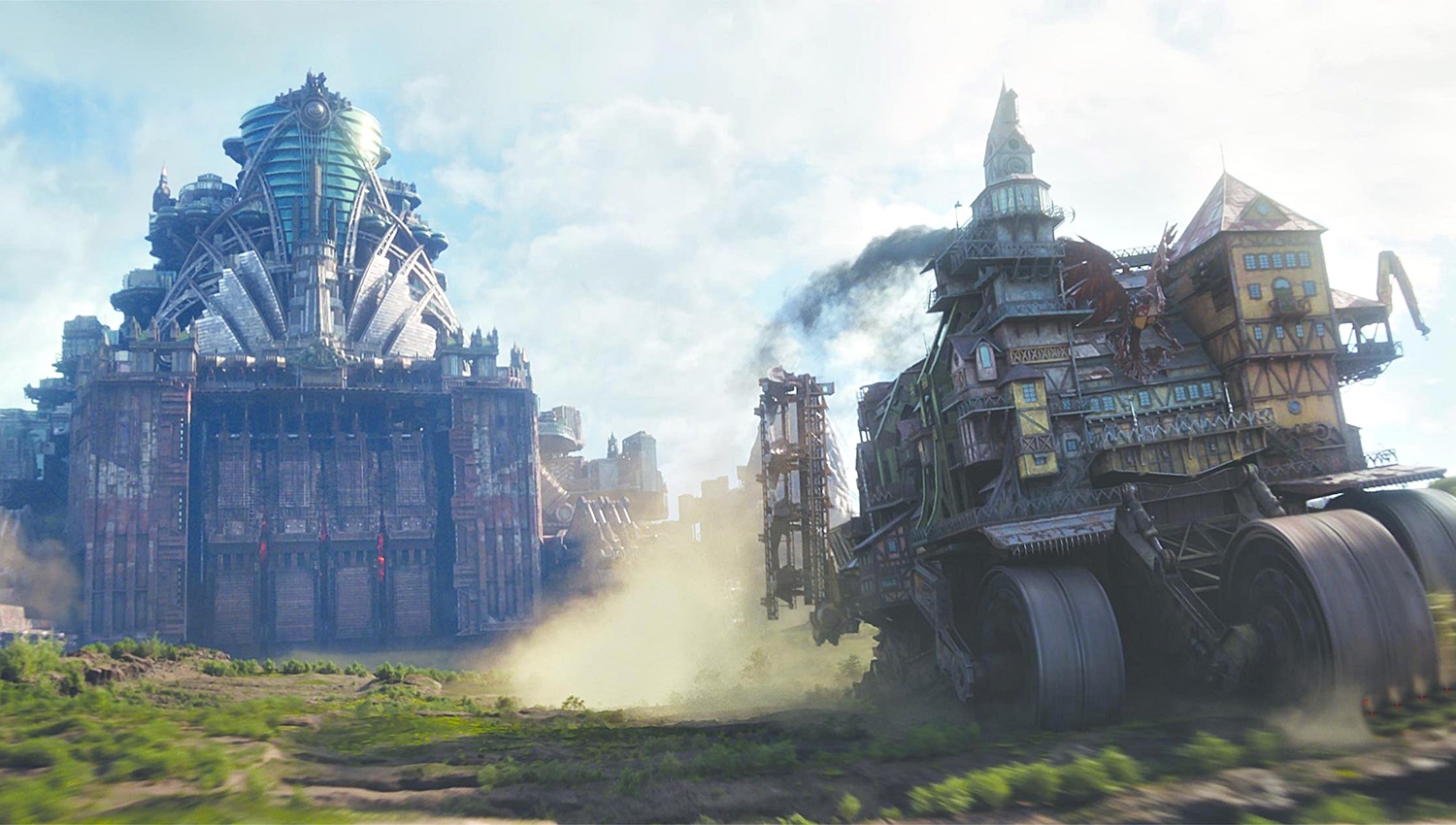It’s hard to know where to start with the Peter Jackson written/produced Mortal Engines. It’s a mess of epic proportions, as Philip Reeve’s novel gets the extra large screen treatment from the team behind The Hobbit. It’s a dizzying blend of elements from all sorts of films including Max Max, Star Wars, Waterworld, Snowpiercer and maybe even a little Sky Captain and the World of Tomorrow. It’s as if Reeve just borrowed things from movies or stories he loved and altered them to look original. Jackson and his Oscar winning team of screenwriters don’t do much to aid the cinematic similarities, instead they embrace the comparisons. The acting isn’t particularly good, mostly new faces to American eyes, aside from Hugo Weaving playing the bad guy as usual. Even more surprising are the lackluster special effects and the film is jam packed full of them. The visual team did however make the Academy Awards shortlist.
The future of earth has turned bleak. Human’s have completely used up the world’s resources where cities as we know them no longer exist. In order to survive, large cities have become mobilized, like cruise ships on land. London is what’s known as a predator city. For example, it’s a massive traveling beast of a city that crushes anything and everything in sight. Multiple stories high, vast in size, scope and capability, the ferocious London feeds on small mobile towns or anything in it’s path for sustainment. Hester Shaw (Hilmar) boards London anonymously and tries to avenge her mother who was killed by London’s second in command Thaddeus Valentine (Weaving). She instead meets Tom Natsworthy (Sheehan) and turns an entire group of Londoners on her side when she exposes what Valentine is really up to.
Mortal Engines has so much of everything, it reduces it’s impact to nothing but relief when it’s over.
Jackson and his female screenwriters script certainly includes elements that can apply to today’s immigration and border crisis. “Children being separated from their parents,” is a line particularly resonate in the early part of the film. Reeve’s concept of mobile cities trying a new way of life and survival is an interesting concept. The film doesn’t have time to dive into all the specifics of this new world, only to say that “The Screen Age” (meaning cell phones, televisions, computers) were just a few of the technological dependencies that led to the end of modern civilization. Every time the audience is given something contemplative, the story jerks us into another subplot involving fighting, romance, or secret weapons. Like he did in Lord of the Rings, Jackson’s protégé director Christian Rivers pulls us to all these different worlds while we race to understand factions, terms, and motives.
Mortal Engines feels more like a video game adaptation that something adapted from a novel. There is even a character representing Terminator as if we needed more fan boy references. There is a real lack of investment in the characters problem. So much action and suspense prohibits any sort of quiet or calm moments, never giving the actors a chance to really live in their roles. The agglomeration of genres, details and plot lines are overwhelming. Mortal Engines has so much of everything it reduces it’s impact to nothing but relief when it’s over. It also feels like Universal desperately mining for a franchise that simply doesn’t have the sustainability or star power to catch fire.
Final Thought
Less of a theater destination flick than a “only if there is nothing else on” flick.

